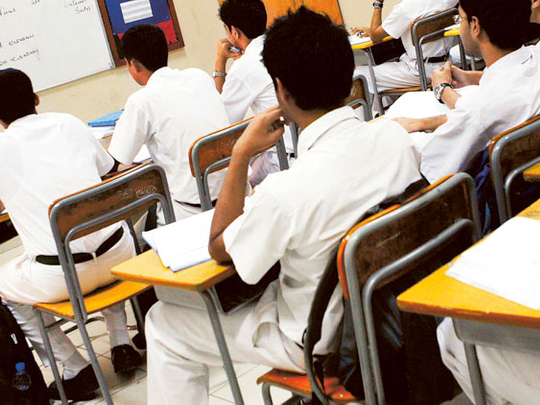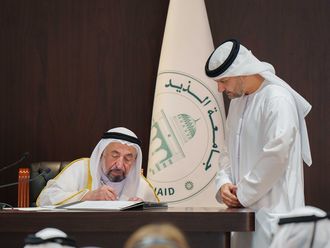
Dubai: The majority of teachers in UAE public schools do not have qualifications or degrees in education, which causes some students to have a higher level of performance than others; this was revealed during the Ministry of Education’s Policy Forum on Wednesday.
The forum analysed the results of international assessment tests that the UAE took part in in 2011 in order to create recommendations and policies that will help the UAE’s educational sector develop and progress.
The international assessment tests discussed and analysed at the forum included: the Trends in Mathematics and Science Study (TIMSS), Progress in International Reading Literacy Study (PIRLS) and the Programme for International Student Assessment (Pisa).
“These tests are important as they act as indicators that reinforce the ministry’s efforts and help in creating policies aimed at developing the education sector. The UAE did receive the highest rank on the level of the region but we still have to improve certain areas that still need work,” said the Minister of Education Humaid Al Qatami.
Though the UAE was among the highest ranking Arab countries in the region, it was below the international average grade of 500 and ranked the 40th place out of 60.
The tests found that there is a strong relation between the performance of students in the UAE and the performance of teachers. This is mainly due to the fact that the student spend 892 hours per year in the fourth grade and 1012 hours in the eighth grade. This time is mainly spent with teachers.
International educator, academic and researcher Mike Helal, Director of Parkville Global Advisory, Mena stated: “The assessment tests found that the majority of Emirati students, especially males were low and average performers. In the same time, five to six per cent of Emirati students were outperforming in comparison to international standards. This can be attributed to the fact that the majority of teachers in public schools do not have qualifications or degrees in education which causes a gap in the performance of students.”
Among the recommendations presented by Helal was the need to study the factors that cause Emirati students to perform poorly in international assessment (especially males) while others exceed expectations.
Other recommendations included encouraging the culture of reading, increasing the level of expectation by parents in regards to student’s performance in order to encourage the educational community to continuously strive for the best and providing parents with reading material.
The ministry should also evaluate its recruitment policy especially that it was proven that the qualification and performance of the teacher is vital in developing UAE student’s performance. A professional development plan should be implemented for every teacher so that they constantly enhance and develop their skills.
The results of the analysis of international tests in the UAE found that using the findings of these international assessment tests are key in the development of the education sector.
For this reason there is a need to encourage the culture of research and evaluation in all of the ministry’s department in order to help in the assessment of data related to managerial tasks in order to meet international standards.












